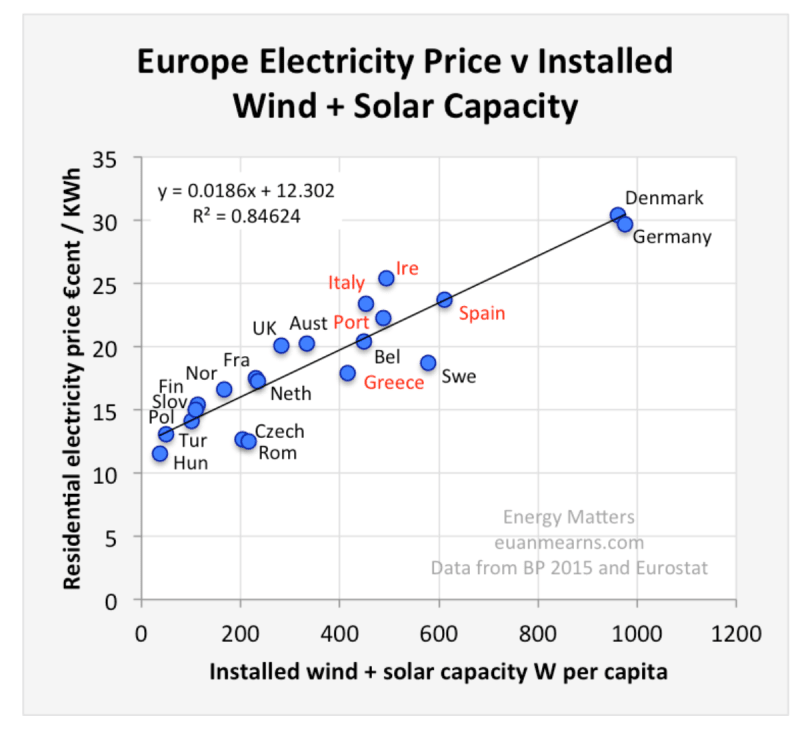GregLocock
Automotive
Australia is in an entirely comparable position, except our idiots don't even see a problem yet. So we'll continue with the Field of Dreams approach, throwing taxpayer money at billionaire's get richer quick schemes.
Though not quite up there with history’s great political texts, Ed Miliband’s letter this week to the director of the ESO, which runs Britain’s national grid, is a rather important document. It reveals – or confirms – that Labour has committed itself to decarbonising Britain’s electricity system by 2030 without really having any idea of how that can be done. Miliband described this letter as a ‘formal commission… to provide practical advice on achieving clean power’.
That is all very well, except shouldn’t Miliband have sought this advice months ago, before pledging to achieve net zero on domestic energy by 2030? This week was supposed to be the big reveal: we would learn how this target – considered unreachable by many – is going to be hit. But Miliband, it seems, doesn’t have the first idea as to how the country can decarbonise the grid, still less by 2030. His agenda and the decarbonisation deadline are starting to look like a ludicrous bluff.
The ‘embodiment’ of Labour’s agenda was supposed to be a new company: Great British Energy. ‘A new home-grown energy company,’ Keir Starmer promised, ‘like Orsted in Denmark and Vattenfall in Sweden.’ There was much talk about where it would be based, and this week we found out: in Aberdeen.
National Grid directors have warned that if Britain sticks to this policy we face blackouts by 2028
The conceit is that the project will mop up all the jobs that will be lost in the oil industry. Except that GB Energy will not be a company generating energy at all; it is instead a name given to an investment scheme.
A few weeks ago, Miliband trumpeted that GB Energy would partner with Crown Estates to create up to 30 gigawatts of new offshore wind developments by 2030. He was so excited that it seemed unfair to point out that the Crown Estate had already set that target in November under the Tories. The 20 million homes which that energy is supposed to power would be lucky to get electricity by 2040, given the wait for new projects to be connected to the grid.
Miliband’s plans are vague to the point of nonexistent, yet he was very specific with his pledges. ‘Great British Energy is part of our mission to make Britain a clean energy superpower by 2030,’ we were told before the election, ‘helping families save £300 per year off their energy bills.’ Instead, we now find out that bills are going up – with the rise in the Ofgem price cap next month adding £149 to the average bill.
‘A direct result of the failed energy policy we inherited,’ Miliband fumed when Ofgem announced the news, ‘which has left our country at the mercy of international gas markets controlled by dictators.’
Even this claim does not stand up to scrutiny. For one thing, the global gas market is not in the hands of dictators: by far the biggest producer is the US. And on the home front, when David Cameron came to power, just 3 per cent of electricity was produced by wind and 0.01 per cent solar. Now, it’s 28 per cent from wind and 4 per cent solar. Few other countries have embraced wind energy so enthusiastically – and all this in spite of Cameron’s de facto ban on onshore wind turbines. Only China generates more electricity from offshore wind.
Boris Johnson’s government was ambitious to a fault, committing to a target of decarbonising the UK electricity system by 2035 – with 95 per cent of electricity to come from green sources by 2030. On its ambition for green power, the previous government was, therefore, very nearly aligned with Miliband. It is hard to escape the conclusion that Miliband brought forward the 2035 target by five years just to one-up the Tories. He thought it sounded good, positive and progressive – and didn’t stop to ask whether the Johnson 2035 deadline may itself have been bluster. Johnson and Miliband simply set their targets for presentational reasons and decided to worry about the details later.
Wind and solar now produce about 34 per cent of British power; to hit the 2030 target, that figure would have to double, according to a recent study by Cornwall Insight.
Assuming all of Miliband’s plans work out, that analysis said, the most he could hope for is 44 per cent. To call his plan ‘ambitious’ – as so many still do – is to deny reality. It’s a demonstrable fantasy. He may carry out his pledge to double onshore wind capacity, triple solar power and quadruple offshore wind, but even this would not be enough when you factor in the biggest single problem: the national grid.
Cheers
Greg Locock
New here? Try reading these, they might help FAQ731-376


